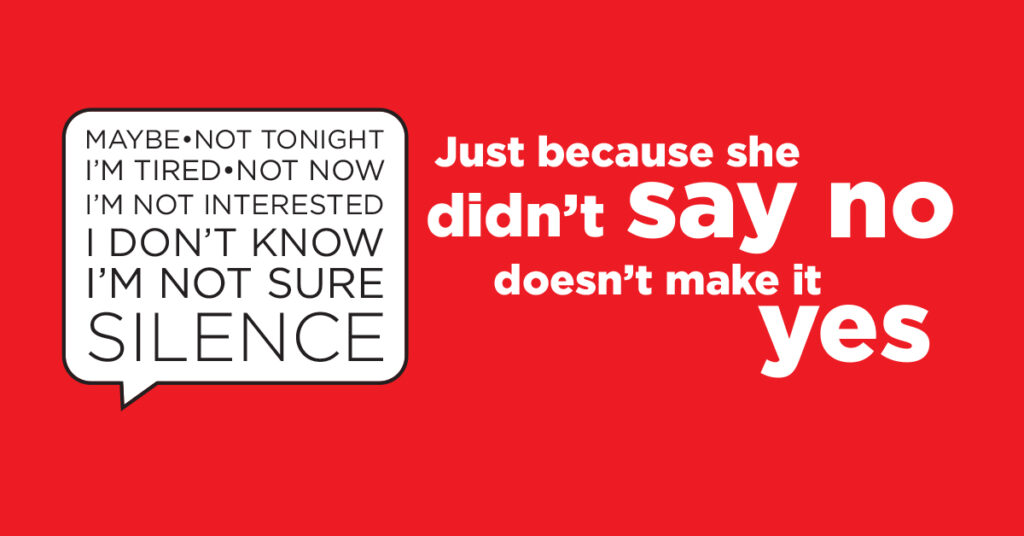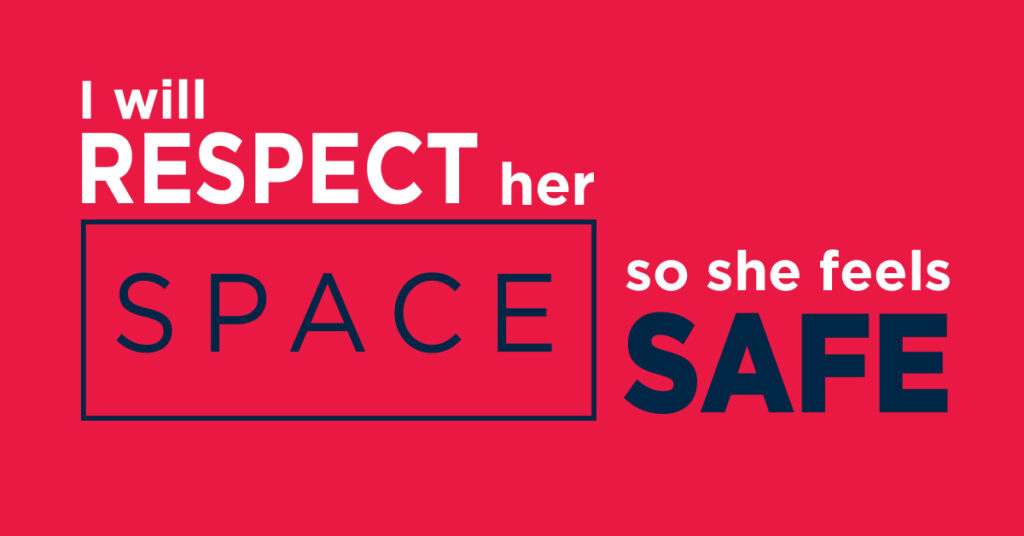Together with the West Midlands Police, we’re launching a new campaign in the run up to Christmas, where we’re asking men to be upstanders for women’s safety, not a bystander to intimidation and violence.
It’s been formed as a direct result of our survey which over 2000 members of the public took part in earlier this year. It focused primarily on how safe women feel when out and about and while the results of the survey showed that many of you feel safe at home and out and about in your neighbourhood during the day, these feelings were lower at night and many of you feel unsafe when out in your nearest town or city at night.
Many of those who took part, referred to cat calling, staring, loutish behaviour and being followed as issues affecting feelings of safety in public.
Our messages cover rape and serious sexual assault, making it clear that unless a woman has given a clear yes to sex then she should not be subjected to a sexual assault.

They also appeal to men to be upstanders for women’s safety by making small changes to their behaviour such as giving women space out on the street and on public transport. They also tell men to show respect for women by not wolf whistling and encourage them to challenge bad behaviour in other men.
The campaigns will run outdoors on poster sites at transport hubs and the regions city centres where festive revellers are expected in record numbers. It will also run across our social media channels.
Complementing these campaigns will be practical safety advice for women. There will be extra awareness of the Ask for Angela scheme – where any woman who feels uncomfortable on a night out can get help from the bar or club she is in by discreetly asking staff for ‘Angela’. Also encouragement to download the Hollieguard app, which turns a mobile phone into a safety device, making it easy for any woman to summon help if they feel they are being followed.

Our messages form part of our overall Safer Streets campaign. The wider Safer Streets campaign also includes police operations to spot and deal with potential male perpetrators as well as better education for young men on respecting women and girls.
Further details can be found here: https://wmpcc.formationmedia.dev/no-excuse-for-abuse/
The West Midlands Victims’ Commissioner Nicky Brennan said: “There is a pandemic of male violence against women and girls in this country – we know we need to do more to make women feel safer.
“That is one of the reasons we are launching this new, West Midlands wide, campaign to highlight to male behaviours that aren’t acceptable and can make women feel uncomfortable and scared.
“We’re calling on men to be open minded, understand the behaviours that are far too common but are simply unacceptable and be able to amend them and call them out when you see them, this is especially relevant for groups of men. By challenging behaviours we can make everybody feel safer.
“This campaign will work primarily to let men know what they can do to make women feel safer – but also what men can do to be upstanders and not bystanders when they see women being harassed or intimidated.
“Our wide-ranging survey of women earlier this year informed directly into this campaign and we will be continuing to use those results of more than 2,000 women to influence the work we do. The views and experiences of women is vital if we are to build trust in policing and the criminal justice system as well as tackle the root causes of male violence against women and girls.
“Clearly there is a vital policing role to be played to ensure that perpetrators are brought to justice, but in many cases this is preventable.
“It’s also important that as well as the work on changing behaviours and having a proactive policing response to violence against women and girls it is key that our services for victims of abuse and harassment are available and are meeting the expectations of victims. We have a wide range of support available to victims which are easily accessible and there to help.”
Chief Superintendent Steve Graham said: “Historically we have given advice to women to change their behaviours – where to go, what to drink, what to wear. The focus was almost entirely on what women needed to do differently to be less at risk. Now that emphasis has rightly changed.
“We have operations running in our night time economies to target men displaying predatory behaviour and we are working with the hospitality industry to make sure that they have practices in place to make women feel as safe as possible in our pubs and clubs. We are engaging with student groups and societies to ask the women what they want to change and advising men’s groups on how some of their toxic behaviours make women feel.
“This isn’t about demonising all men or scaring women into not feeling safe. But the simple fact is that women feel less safe in public spaces than men.”


